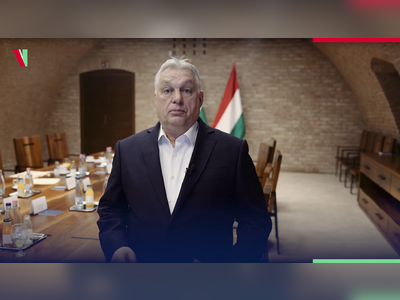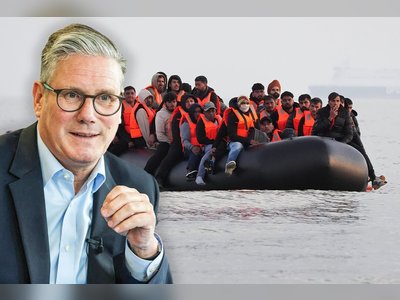
EU Warns of Mercury and Other Pollutants Contaminating Europe's Rivers
The European Commission indicates that pollution is prevalent in the water bodies of Europe, with member states requesting exceptions to environmental laws.
The European Commission has issued a severe warning about the condition of Europe’s waterways, disclosing that a significant number of rivers, lakes, and streams across the continent are heavily polluted with mercury and other contaminants.
This widespread contamination is contributing to an ongoing crisis in water quality, necessitating immediate action to tackle the problem.
According to the Commission’s most recent reports, fewer than 40 percent of the EU’s surface water bodies possess good ecological status, and only slightly more than a quarter comply with the necessary standards for chemical pollution, mainly due to mercury and polycyclic aromatic hydrocarbons (PAHs).
These pollutants remain in the environment for long periods, circulating through the air, land, water, and living organisms. These reports are part of the groundwork for a forthcoming EU Water Resilience Strategy, which is scheduled to be unveiled later this year.
European Environment Commissioner Jessika Roswall stressed the importance of enhancing water resilience, pointing out threats that range from pollution to challenges in water supply and inadequate flood preparedness.
The strategy aims to guarantee access to clean water and enhance protection against water-related hazards. Mercury, primarily released through the burning of fossil fuels, and PAHs, stemming from both historical pollution and ongoing emissions, are significant factors in the poor chemical status of EU waterways.
Groundwater, which accounts for 65 percent of the EU’s drinking water supply, is in better shape, with 86 percent of groundwater bodies meeting good chemical standards.
Nevertheless, pollutants like nitrates originating from intensive agriculture and livestock farming continue to present challenges. In the Baltic Sea, nitrogen and phosphorus pollution, largely from fertilizers, has considerably affected coastal waters.
The European Commission is contemplating stricter regulations for the agricultural sector, recognizing the necessity for farmer involvement in discussions about water management.
The report also highlighted the importance of the European Green Deal, which could help enhance water quality through initiatives such as the revised Urban Wastewater Treatment Directive.
Despite these initiatives, several EU member states have expressed intentions to seek exemptions from environmental regulations, including extending compliance deadlines or easing environmental standards.
The Commission is also directing its attention toward emerging pollutants, including PFAS, microplastics, and pharmaceuticals. The increasing issues of water scarcity and drought are becoming pressing concerns within the EU, with more countries pursuing exemptions due to the effects of prolonged droughts on their capacity to achieve water quality objectives.
This widespread contamination is contributing to an ongoing crisis in water quality, necessitating immediate action to tackle the problem.
According to the Commission’s most recent reports, fewer than 40 percent of the EU’s surface water bodies possess good ecological status, and only slightly more than a quarter comply with the necessary standards for chemical pollution, mainly due to mercury and polycyclic aromatic hydrocarbons (PAHs).
These pollutants remain in the environment for long periods, circulating through the air, land, water, and living organisms. These reports are part of the groundwork for a forthcoming EU Water Resilience Strategy, which is scheduled to be unveiled later this year.
European Environment Commissioner Jessika Roswall stressed the importance of enhancing water resilience, pointing out threats that range from pollution to challenges in water supply and inadequate flood preparedness.
The strategy aims to guarantee access to clean water and enhance protection against water-related hazards. Mercury, primarily released through the burning of fossil fuels, and PAHs, stemming from both historical pollution and ongoing emissions, are significant factors in the poor chemical status of EU waterways.
Groundwater, which accounts for 65 percent of the EU’s drinking water supply, is in better shape, with 86 percent of groundwater bodies meeting good chemical standards.
Nevertheless, pollutants like nitrates originating from intensive agriculture and livestock farming continue to present challenges. In the Baltic Sea, nitrogen and phosphorus pollution, largely from fertilizers, has considerably affected coastal waters.
The European Commission is contemplating stricter regulations for the agricultural sector, recognizing the necessity for farmer involvement in discussions about water management.
The report also highlighted the importance of the European Green Deal, which could help enhance water quality through initiatives such as the revised Urban Wastewater Treatment Directive.
Despite these initiatives, several EU member states have expressed intentions to seek exemptions from environmental regulations, including extending compliance deadlines or easing environmental standards.
The Commission is also directing its attention toward emerging pollutants, including PFAS, microplastics, and pharmaceuticals. The increasing issues of water scarcity and drought are becoming pressing concerns within the EU, with more countries pursuing exemptions due to the effects of prolonged droughts on their capacity to achieve water quality objectives.











